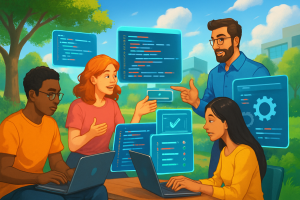Understanding how to manage and organize data is an essential competency for anyone aiming for success in the technology sector. A robust knowledge of Database Management Systems (DBMS) empowers professionals to handle data efficiently, supporting everything from healthcare records and banking platforms to social media and e-commerce applications.
Course Overview: Structured Learning for Real-World Success
A recently released course on the freeCodeCamp.org YouTube channel offers a comprehensive journey through DBMS concepts. The curriculum is meticulously structured, combining foundational theory with hands-on exercises and real-world scenarios. Learners are guided from the basics of database management to advanced techniques, ensuring a well-rounded skill set.
Key Benefits of Learning DBMS
- Databases are integral to nearly every modern application and service.
- Mastery of DBMS enables professionals to store, organize, and retrieve data efficiently.
- Skills in DBMS are highly sought after in software development, data science, and system administration.
- Understanding DBMS concepts prepares learners for technical interviews and competitive exams such as GATE.
What Makes This DBMS Course Unique
Kshitij Sharma leads the course, delivering complex topics with clarity and enthusiasm. By leveraging real-world examples—such as social media and banking systems—he makes abstract concepts like entity-relationship (ER) modeling and relational algebra accessible and practical. The course content aligns with standard academic textbooks and is tailored to meet the needs of students preparing for high-stakes exams, as well as professionals seeking to deepen their expertise.
Course Structure and Syllabus
The course is divided into six core units, each building on the previous to ensure comprehensive understanding:
- Introduction: Foundations of DBMS and its importance in technology.
- Relational Data Model and Algebra: Exploring relations and operations fundamental to database theory.
- SQL: Learning to query and manipulate data using Structured Query Language.
- Database Design and Normalization: Techniques for structuring efficient and reliable databases.
- Transaction Processing: Managing concurrent data access to ensure consistency and reliability.
- Indexing: Methods for optimizing data retrieval and improving performance.
The first part of the course focuses on the initial three units, with a second installment planned to address normalization, indexing, and functional dependencies in greater detail.
Who Should Take This Course?
This DBMS course is ideal for:
- Students preparing for technical exams or interviews
- Aspiring software developers and data scientists
- IT professionals seeking to expand their database expertise
- Anyone interested in understanding how modern data-driven applications operate
Conclusion
Mastering Database Management Systems is a pivotal step for anyone aiming to thrive in today’s technology-driven world. With a blend of theory, practice, and real-world application, this course provides the knowledge and skills needed to excel in diverse tech roles.
Read more such articles from our Newsletter here.



